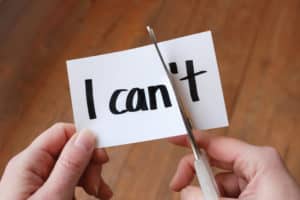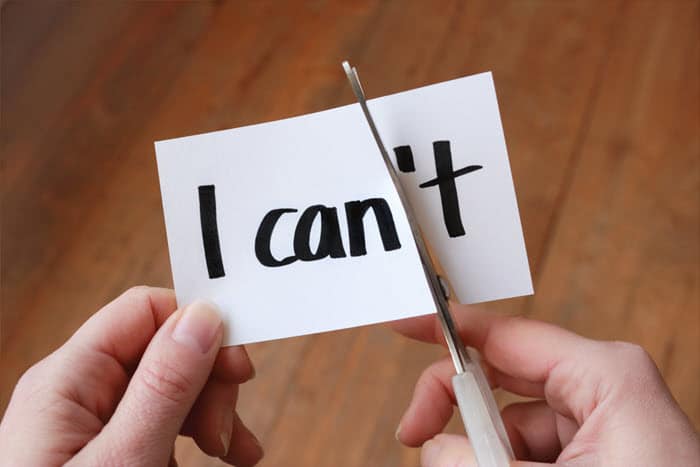Table of Contents
 If you are searching for a natural alternative to boost your mood and enhance emotional harmony, the best nootropics for mood may help.
If you are searching for a natural alternative to boost your mood and enhance emotional harmony, the best nootropics for mood may help.
This guide dives into the science of nootropics for emotional balance and explains how to use these supplements for a better mood.
You will learn how and why neurotransmitter dysfunction may play a role in your emotional state. And you will discover the top 7 natural nootropics that may help you get the mood boost you are looking for.
So, ready to embark on a journey toward a brighter, more balanced you? Let’s get started!
Key Takeaways
-
- Nootropics optimize cognitive performance but can also boost mood.
- Neurotransmitters, including GABA, serotonin and dopamine, are central to mood modulation.
- Herbal nootropics such as St. John’s Wort, Ashwagandha, Polygala Tenuifolia, and Rhodiola Rosea can elevate mood and foster emotional harmony.
- Certain nootropics, like Ashwagandha and Rhodiola rosea, are adept at reducing stress and anxiety.
 The Science of Nootropics for Mood
The Science of Nootropics for Mood
The research into nootropics for mood is being conducted by universities and leading research institutions worldwide. Often called cognitive enhancers, nootropics are natural supplements shown to have a powerful effect on brain health and function. The popularity of using nootropics for mood enhancement is going mainstream.
Studies indicate that select nootropics can boost cognitive performance by stimulating the synthesis of neurotransmitters including GABA, dopamine, serotonin, and acetylcholine. These neurotransmitters are integral for mood, motivation, concentration, and memory.
Nootropics have also been shown to help reduce oxidative stress and inflammation, increase cerebral blood circulation, and boost neuroplasticity required for memory and brain repair and maintenance.
While further research is needed to decode the precise mechanisms of action that nootropics have on mood and cognitive performance, decades of research so far are promising.
 Decoding the Role of Neurotransmitters for Mood
Decoding the Role of Neurotransmitters for Mood
To comprehend the influence of neurotransmitters on your emotional state, you first need to understand in very basic terms how your brain works.
GABA, serotonin, and dopamine stand out as pivotal neurotransmitters affecting mood. Often called the “happiness molecule”, serotonin helps govern mood, sleep patterns, learning and memory, and feelings of general well-being. Low serotonin is commonly linked with depression and anxiety disorders.
On the other hand, dopamine, the “reward molecule”, is involved in pleasure and reward-driven actions. Dopamine aids in experiencing enthusiasm, zeal, and motivation. An imbalance in dopamine can manifest as mood disorders, including depression or anxiety.
The optimal balance of serotonin and dopamine is vital for emotional stability. When these neurotransmitters get out of balance, it can lead to emotional problems.
And GABA is your major inhibitory neurotransmitter. When GABA levels are low you feel filled with dread, you’re constantly worried, you have racing thoughts, and you’re frequently late and disorganized.[i]
Understanding how these neurotransmitters work even on the most basic level can help you create a nootropics for mood strategy that will help you feel better.
By targeting these neural pathways, be it through nootropic supplements, prescription meds, lifestyle changes, or therapy, you are well on your way to a better mood.
7 Best Natural Nootropics for Mood and Emotional Health
Elevate your emotional health naturally with these well-known and widely used nootropics. These mood enhancers are recognized for supporting brain performance and fostering positive emotions. Nootropics for a better mood are a holistic approach to feelings of  mental well-being.
mental well-being.
St. John’s wort
St. John’s wort is a plant that has been traditionally used for mood disorders. Today it’s used mostly as a treatment for anxiety, depression, and stress reduction. CAUTION: if you are using any prescription meds to treat your mood disorder then please consult your doctor before using St. John’s wort. Because combining the two could cause Serotonin Syndrome which can be deadly.
Ashwagandha
Ashwagandha is one of the most powerful herbs in Ayurvedic healing. This popular adaptogen helps reduce the stress hormone cortisol. Ashwagandha also enhances GABA receptors and regulates serotonin in the brain. Ashwagandha users say it is the best antidepressant they’ve ever used.
Lithium Orotate
Lithium Orotate is well known for stabilizing mood. It helps with treatment-resistant depression and has been shown to improve the effectiveness of antidepressant medications. This is one of the best mood stabilizers I’ve ever used.
L-Glutamine
L-Glutamine is a precursor to GABA which works by preventing neural signaling in over-excited neurons caused by glutamate that could result in anxiety and depression.[ii]
Polygala Tenuifolia
Polygala Tenuifolia works as a Monoamine Oxidase Inhibitor (MAOI). Increased dopamine and norepinephrine release has consistently been shown to act as an anti-depressant.[iii]
Rhodiola Rosea
Rhodiola Rosea, another popular nootropic, boosts mood by influencing serotonin and norepinephrine levels in your brain, and the feel-good opioids like beta-endorphins. Clinical studies show Rhodiola Rosea as a nootropic can be as effective for mood and depression as some popular prescription antidepressants.[iv]
Tryptophan
Tryptophan is the sole precursor of serotonin. Often referred to as the “happiness molecule”, increasing serotonin levels by using L-Tryptophan can help boost mood and lower depression.[v]
If you suspect you know which neurotransmitter is causing you problems, choosing the appropriate nootropic supplement from the list above may help relieve your depression symptoms.
If you don’t have a clue what the cause is, then test each one for a few days until you find a nootropic that works for you. And get a mood lift without the negative side effects often associated with their prescription antidepressant alternative.
 The Merits of using Nootropics for Mood
The Merits of using Nootropics for Mood
Incorporating nootropics can be a blessing if you are grappling with mood issues, offering a holistic approach to mental well-being. While primarily recognized for cognitive enhancement, certain nootropics can also boost mood.
Benefits include:
- Enhanced Cerebral Function: Nootropics like Ashwagandha and Rhodiola Rosea reduce stress hormones, along with anxiety and depression.
- Mood Elevation: St. John’s wort and L-Tryptophan help boost serotonin which is often at the heart of mood issues.
While nootropics present potential benefits for mood and anxiety management, individual reactions can differ. Always read the Side Effects section of each individual nootropic supplement review. And if in doubt, consider consulting with a healthcare practitioner especially if you are using anti-anxiety or antidepressant meds.
Guided Approach to Selecting Nootropics for Mood Elevation
Navigating the often overwhelming number of nootropic options can be daunting. Taking a methodical approach to choosing what to try and reading each of my nootropic supplement reviews can help.
Become familiar with dosage recommendations, potential Side Effects and drug contraindications, what others say of their experience with a supplement, and choosing the right supplement to buy can help calm your anxiety. And you’ll be well on your way to feeling better.
 What are the Best Nootropics for Mood?
What are the Best Nootropics for Mood?
Based on my personal experience as well as thousands of comments and speaking with others in our nootropics community, the following nootropics may work well for you for improving mood.
Ashwagandha
Ashwagandha helps reduce anxiety and depression. It reduces the stress hormone cortisol, helps regenerate axons, dendrites, and synapses, and enhances GABA receptors and regulates serotonin in the brain. It appears to work on neuron receptors, enabling GABA to connect easier. Ashwagandha users say it is the best antidepressant they’ve ever used.[vi]
Lithium Orotate
Lithium Orotate Lithium calms mania (extreme highs and lows) by decreasing sensitivity of the post-synaptic norepinephrine receptor.[vii] research has discovered that lithium’s mood stabilization effects may be due to its ability to boost the production of new brain cells (neurogenesis).[viii] See my full review of Lithium Orotate and see why some scientists are beginning to ask “why isn’t everyone using lithium”?
L-Glutamine
L-Glutamine is a precursor to, and increases GABA levels which works by preventing neural signaling in over-excited neurons caused by glutamate that could result in anxiety and depression.[ix]
Polygala Tenuifolia
Polygala Tenuifolia has been shown to inhibit both MAO-A and MAO-B, reduces cortisol release, and superoxide dismutase (SOD) activity (which causes oxidative stress). The reduction of cortisol, oxidative stress, and increased dopamine and norepinephrine release has consistently been shown to act as an anti-depressant.[x]
Rhodiola Rosea
Rhodiola Rosea, is an adaptogenic herb and nootropic that has been used in traditional medicine in Russia and Scandinavian countries for hundreds of years. A human clinical trial with 57 people diagnosed with depression found that Rhodiola Rosea was nearly as good of an antidepressant as sertraline. But without the side effects associated with long-term use of sertraline.[xi]
St. John’s wort
St. John’s wort inhibits the uptake of serotonin, dopamine, GABA, glutamate and norepinephrine. Inhibiting the neuronal uptake of these neurotransmitters can have a profound effect on depression and mood. A meta-analysis published in 1997 the British Medical Journal based on 23 previously published clinical studies showed that overall, St. John’s wort was as effective as pharmaceutical antidepressants.[xii]
Tryptophan
Tryptophan is the sole precursor of serotonin. Often referred to as the “happiness molecule”, a study conducted at the University of Queensland in Australia concluded that Tryptophan was better that placebo for alleviating depression.[xiii]
Frequently Asked Questions
Are Nootropic Mood Enhancers Safe?
While research underscores the safety of mood-enhancing nootropics, always read the Side Effects section of each of my nootropic supplement reviews. And make sure that anything you decide to try is not contraindicated with any prescription meds you are using.
Can Nootropics Serve as Long-Term Mood Solutions?
Nootropics may offer long-term mood solutions, but keep in mind that no one has done studies on the long-term use of nootropic supplements. Because clinical studies are extremely costly to conduct.
Potential Side Effects of Mood-Enhancing Nootropics?
Every nootropic supplement is considered non-toxic and safe to use by most people. But every supplement has the potential for Side Effects, and some are contraindicated with prescription meds. Read the Side Effects section for each of my nootropic supplement reviews.
Expected Timeline for Nootropic-Induced Mood Uplift?
The timeline varies for each nootropic supplement. You may feel the effects within a day or two for some and others, especially nootropic herbs may take several weeks of daily use before you’ll feel the benefits of that nootropic.
Can Nootropics Complement Other Mood-Enhancing Medications?
While possible, ensure no contraindications exist. While some nootropics may work with prescription meds, others cannot be used with meds. St. John’s wort and L-Tryptophan are two examples that cannot be used with anti-anxiety or antidepressant meds.
Final Thoughts
Thorough research suggests that nootropics can indeed be a benefit for those seeking emotional balance and relief from depression. User reviews support the conclusion of that research.
By modulating or increasing neurotransmitter levels, they offer a pathway to alleviate stress, anxiety, and even reduce depression.
The key to success with nootropics for mood is having the willingness to experiment until you find what works for you.
Many have had success with relief from anxiety and depression. And you can too!







Join The Discussion - 2 comments
Mark David
February 15, 2024
David, my wife and I have been taking Methylene Blue daily for about 17 months. we are taking a low dose daily between .5 and 1.0 mg per Kg of body weight. She takes 60 mg per day, and I take 100 mg per day for UTI’s and mild Depression and MB works well for both. This week, we started taking a low dose Ashwaganda supplement at just 1/3 of the recommended dose. Within half a day, we both felt the effects Ashwaganda and they were good.
Here’s my question: At these low doses, are we at risk for Serotonin Syndrome? I haven’t seen anything on these two supplements for contraindications or dangers.
David Tomen
February 16, 2024
Mark, Ashwagandha seems to modulate serotonin but does not increase it. But it may potentiate the way Methylene Blue works. So, it may seem you are getting a higher dose of MB than intended. My advice is keep an eye on that and how you feel. If anything feels off them stop using Ashwagandha.